Threats and Extremist Attacks on Hezbut Tawheed Escalate (after 05 august 2024)
Category :
Facing Violence
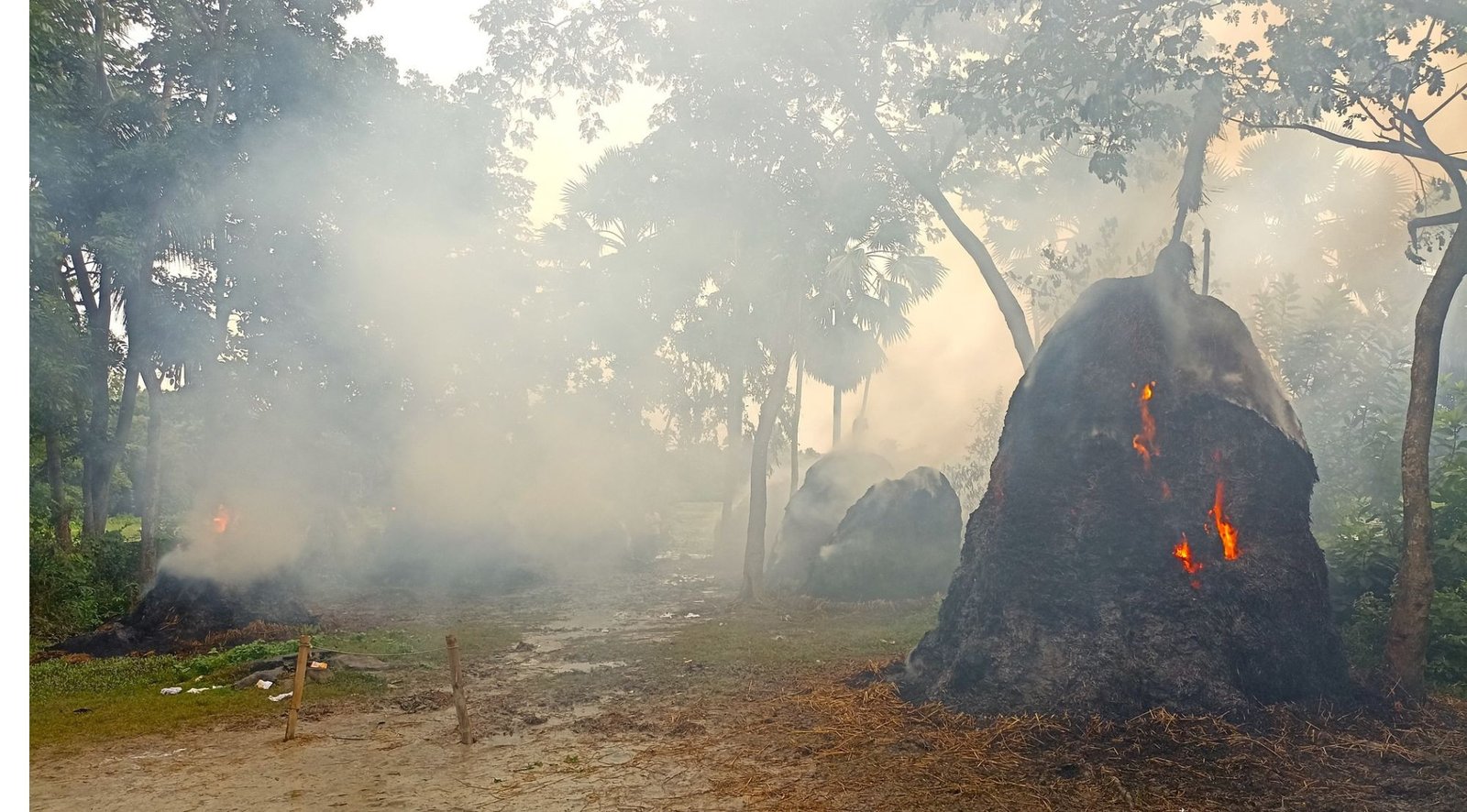
Caption: On the night of August 9, in Saharpur village, Sonaimuri, Noakhali, miscreants set fire to eight haystacks collected from 30 acres of land. These haystacks were intended for a cattle farm located 100 meters away. (09 August 2024, Noakhali)
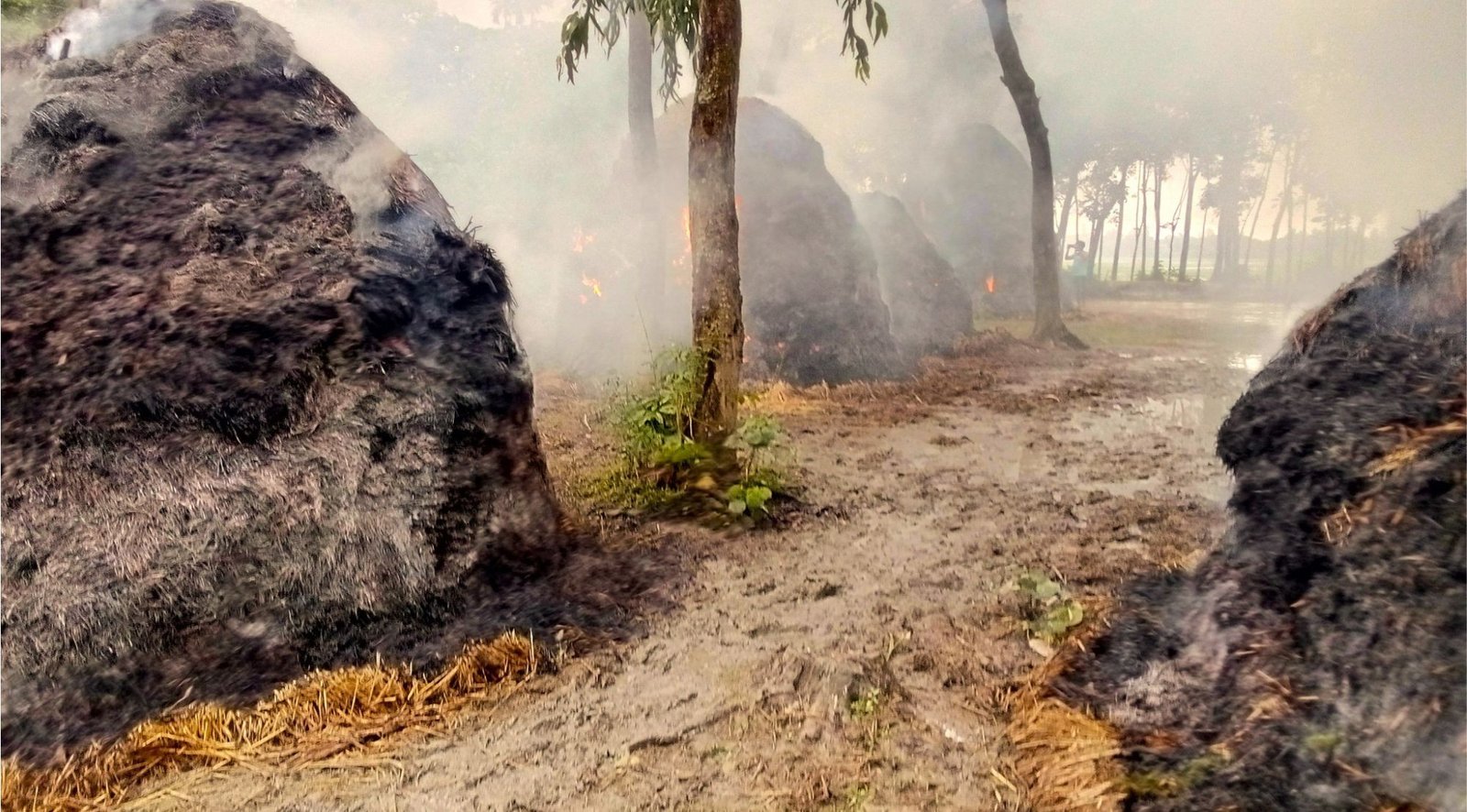
Caption: On the night of August 9, in Saharpur village, Sonaimuri, Noakhali, miscreants set fire to eight haystacks collected from 30 acres of land. These haystacks were intended for a cattle farm located 100 meters away. (09 August 2024, Noakhali)

Caption: Joypurhat district office vandalized. (05 August 2024, Joypurhat)

Caption: Joypurhat district office vandalized. (05 August 2024, Joypurhat)

Caption: Joypurhat district office vandalized. (05 August 2024, Joypurhat)

Caption: Hezbut Tawheed members’ shops and houses were vandalized in Pabna. (05 August 2024, Pabna)

Caption: Hezbut Tawheed members’ shops and houses were vandalized in Pabna. (05 August 2024, Pabna)

Caption: Sunamganj district office was vandalized and signboards, banners were torn down. (05 August 2024, Sunamganj)

Caption: Sunamganj district office was vandalized and signboards, banners were torn down. (05 August 2024, Sunamganj)

Caption: In Bipulashar, around the house of the Hezbut Tawheed Imam, there are 50 families living nearby. During the attack, the houses ware completely looted and vandalism is carried out. (13 August 2024, Cumilla)
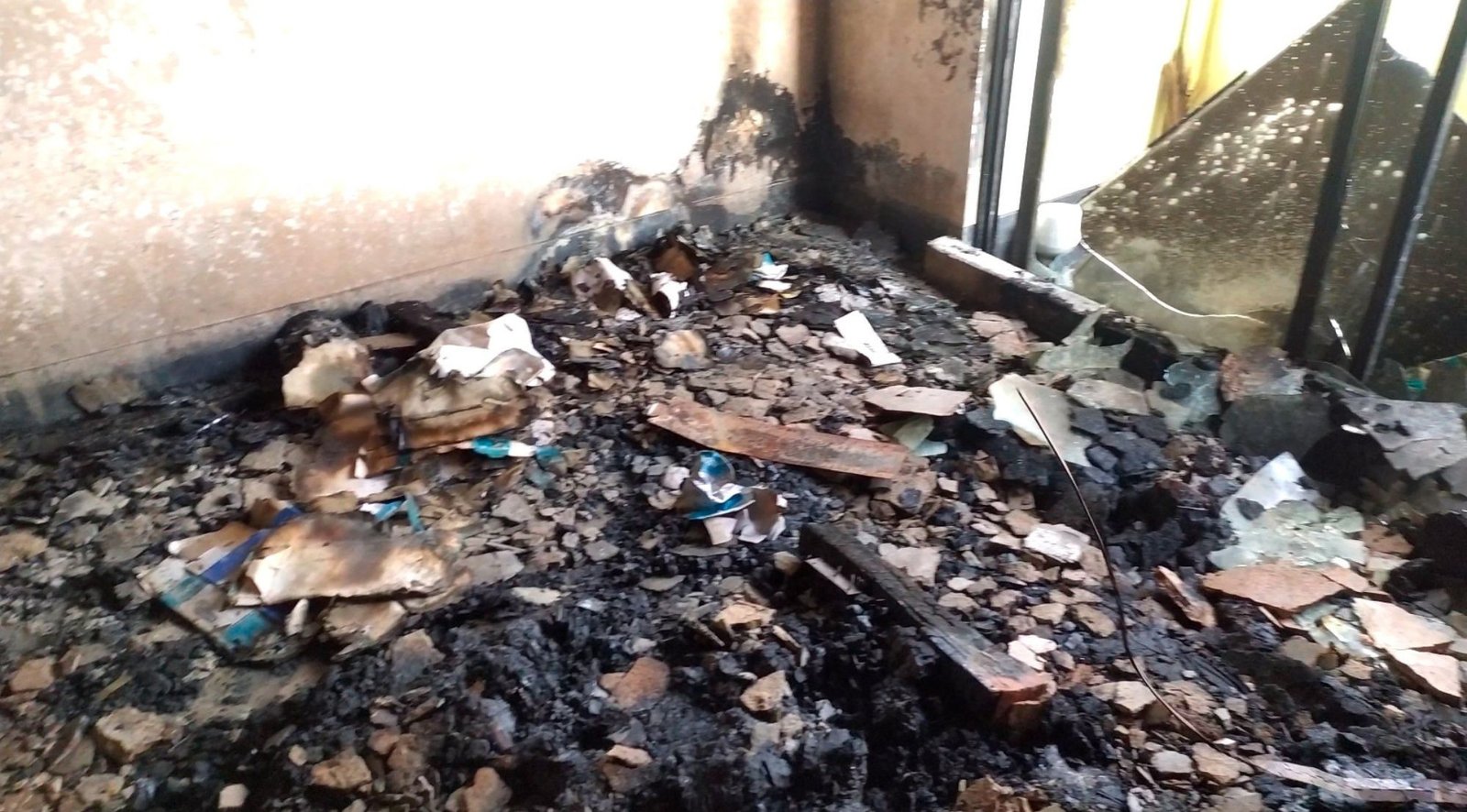
Caption: The homes of the members of “Hezbut Tawheed” were attacked, set on fire, and everything inside was completely destroyed by the flames. (13 August 2024, Cumilla)

Caption: In Bipulashar, around the house of the Hezbut Tawheed Imam, there are 50 families living nearby. During the attack, the houses ware completely looted and vandalism is carried out. (13 August 2024, Cumilla)
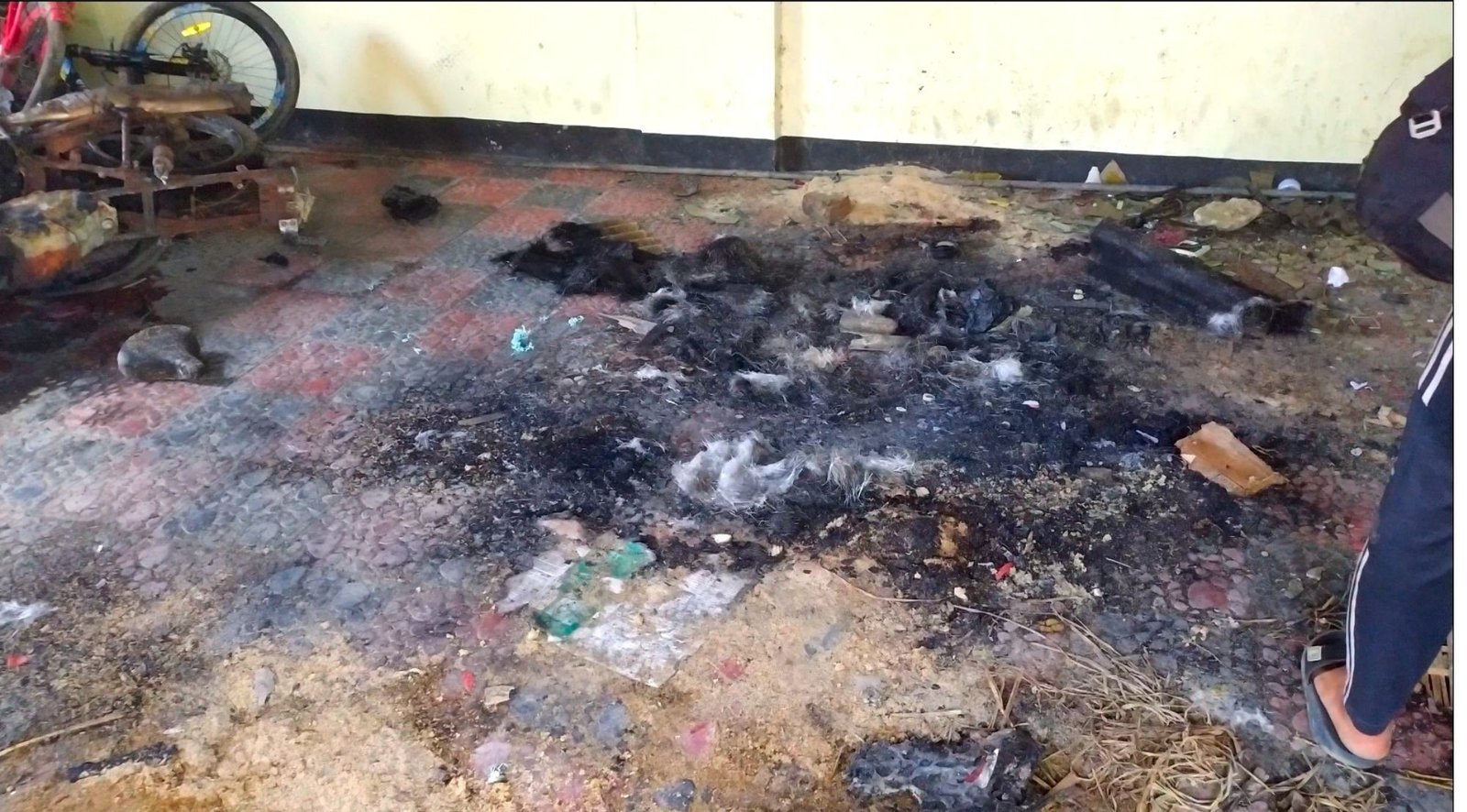
Caption: The homes of the members of “Hezbut Tawheed” were attacked, set on fire, and everything inside was completely destroyed by the flames. (13 August 2024, Cumilla)

Caption: They set the house on fire in the middle of the night, trying to kill the whole family. (20 August 2024, Lakshmipur)

Caption: The attackers broke the windows of the house and looted valuables from inside. (13 August 2024, Cumilla)
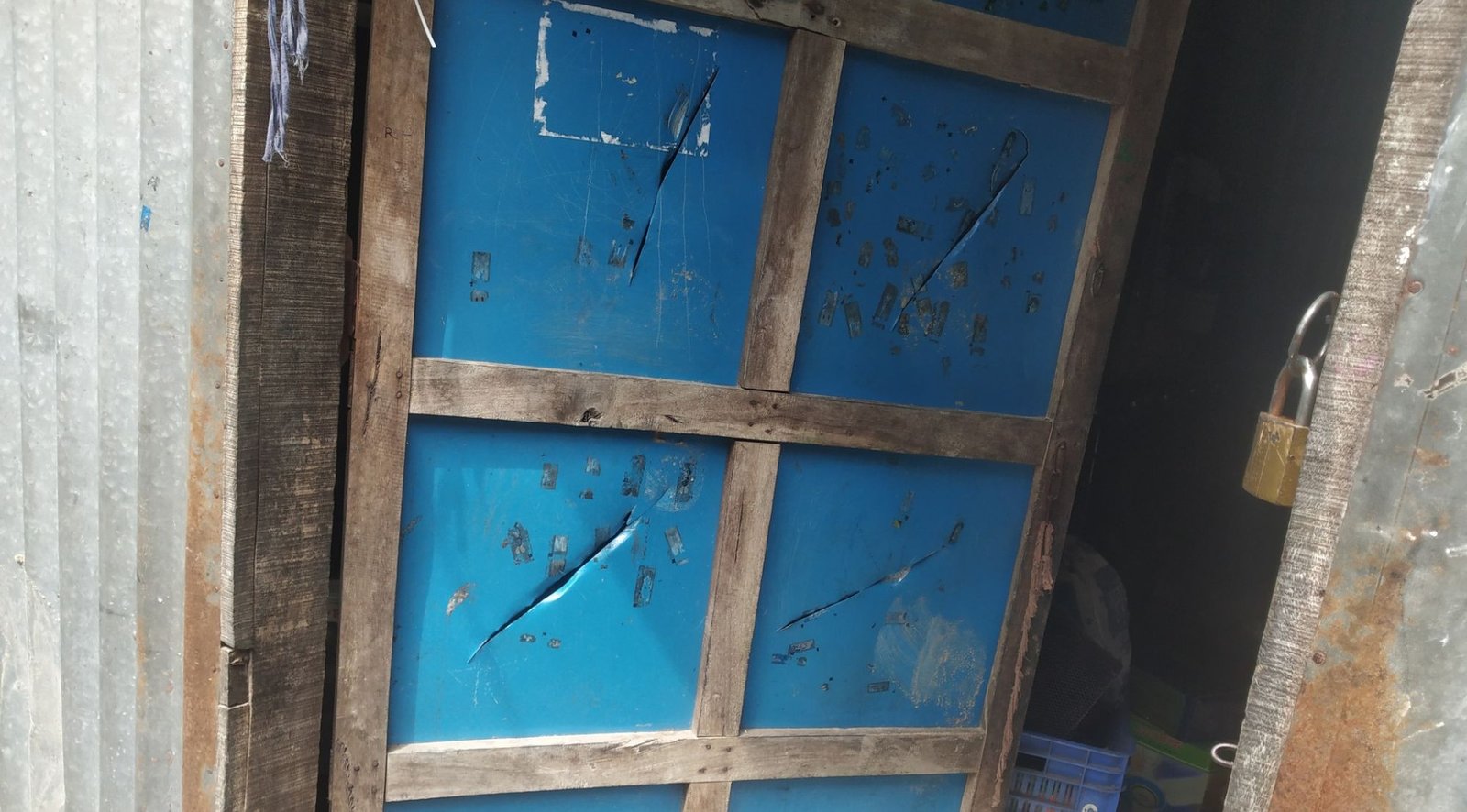
Caption: They also smashed the shop’s shutters and destroyed the furniture. (13 August 2024, Cumilla)
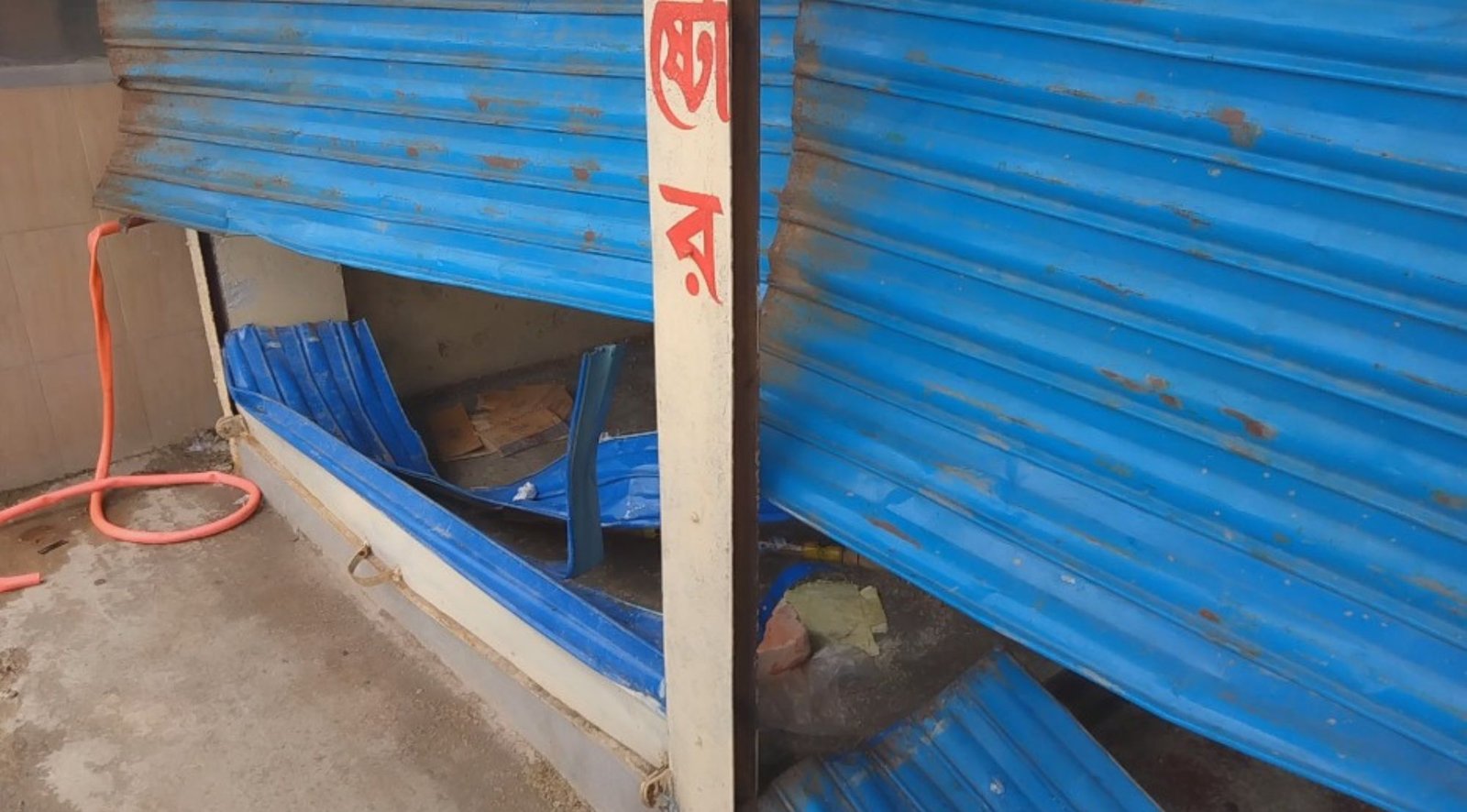
Caption: The attackers broke the windows of the house and looted valuables from inside. (13 August 2024, Cumilla)
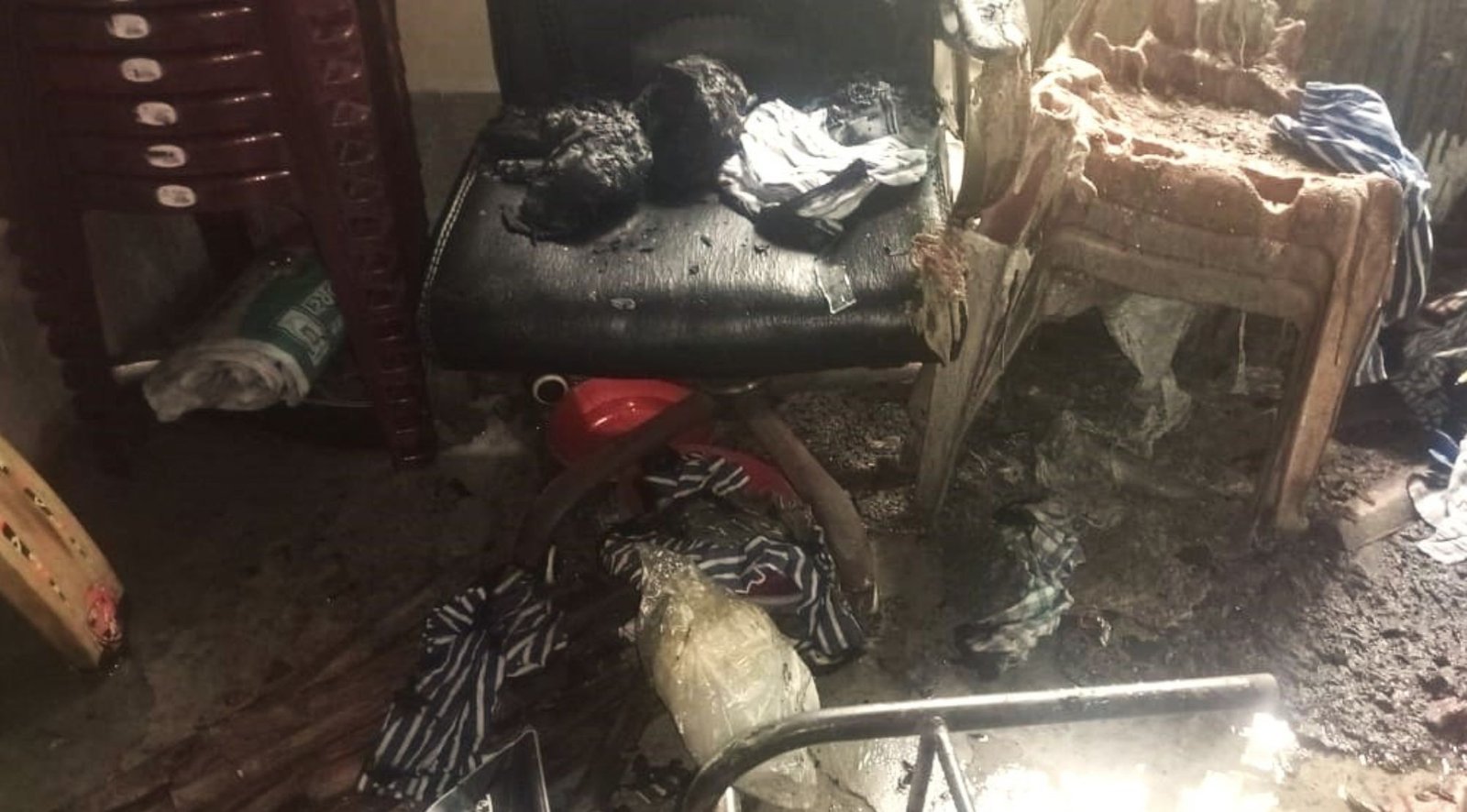
Caption: They set the house on fire in the middle of the night, trying to kill the whole family. (20 August 2024, Lakshmipur)
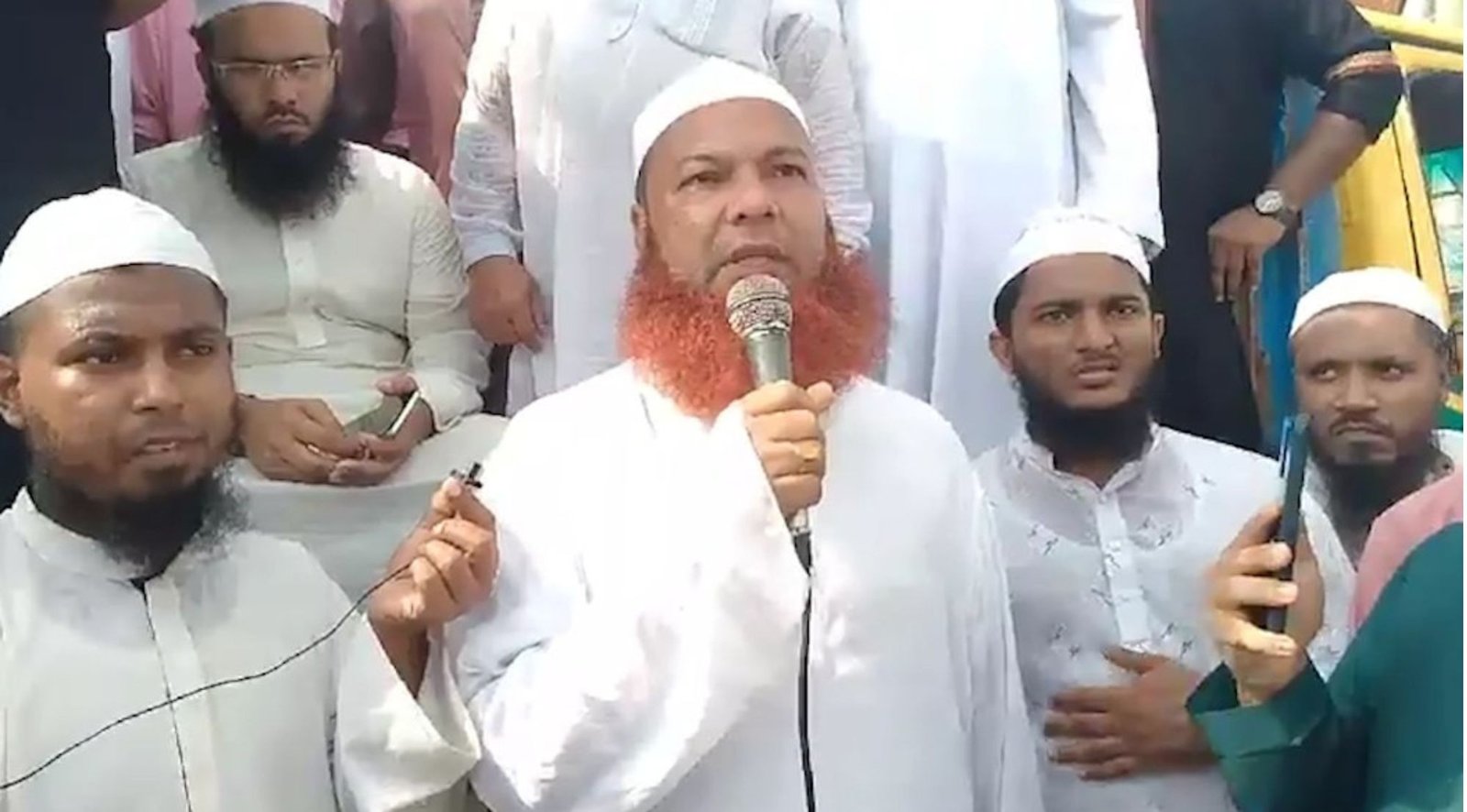
Caption: They threatened that if we complain to the police station, they will surround the police station. (07 September 2024, Noakhali)
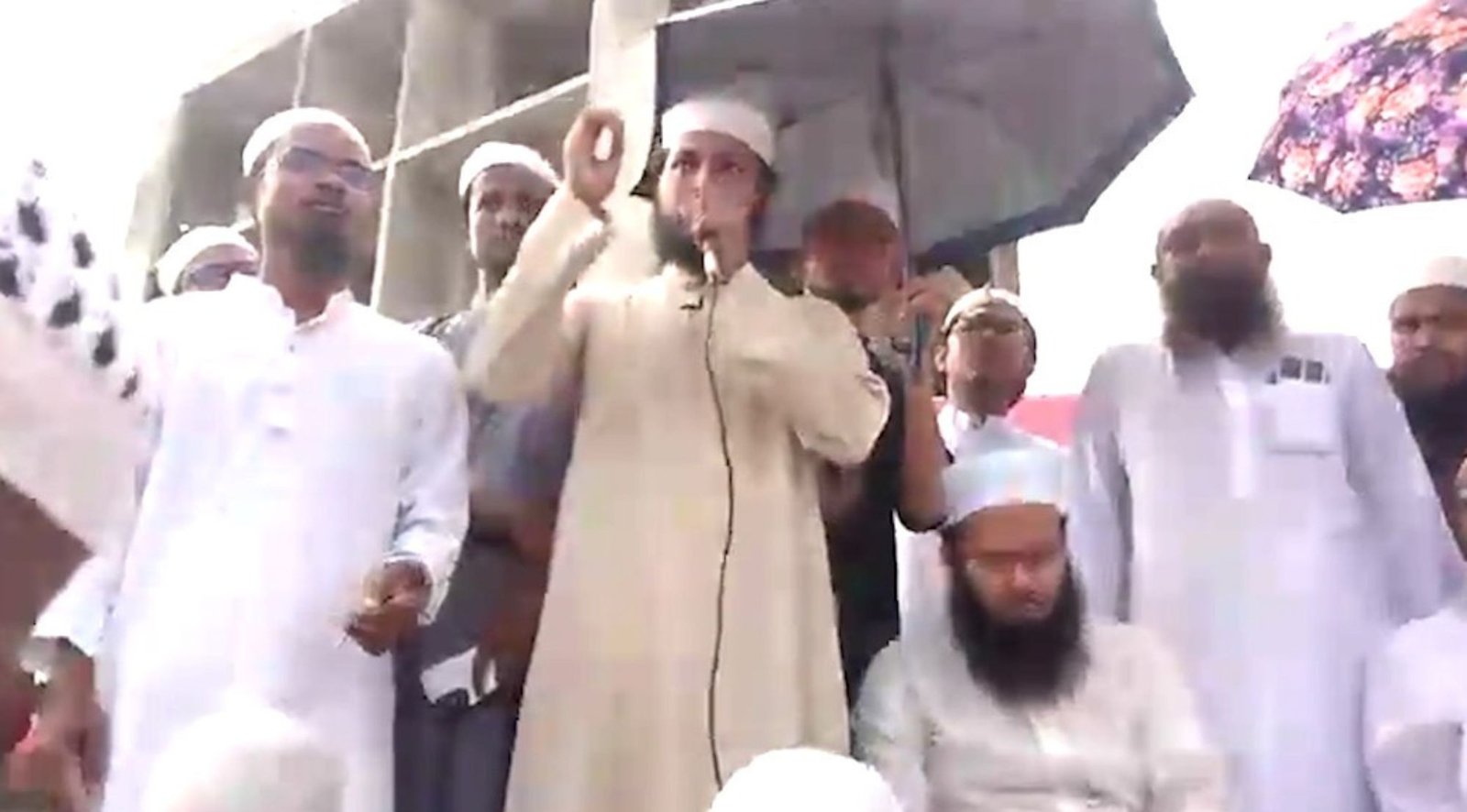
Caption: They threatened that if we complain to the police station, they will surround the police station. (07 September 2024, Noakhali)
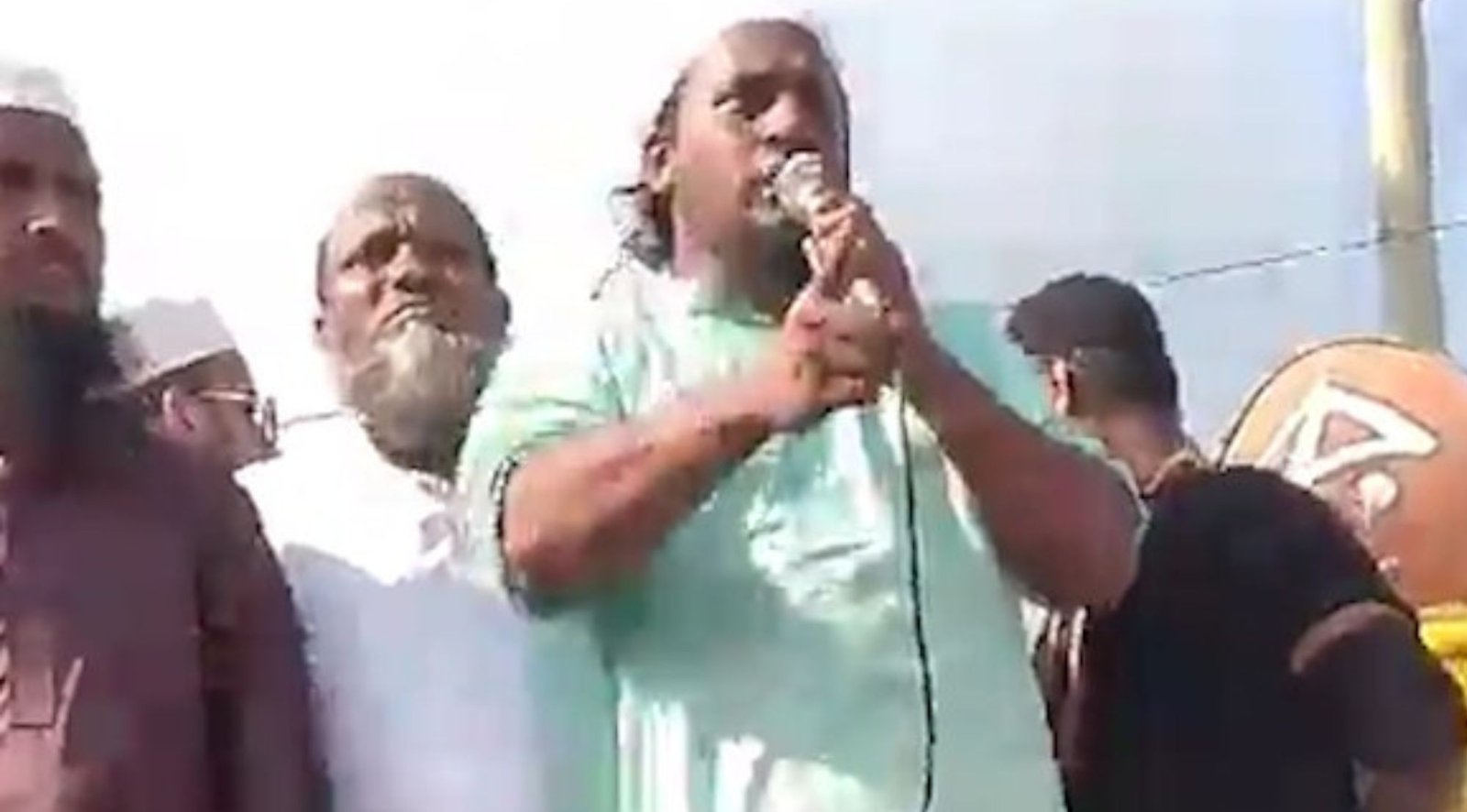
Caption: At the Sonaimuri Crossroads, they incited the crowd with provocative speeches. (07 September 2024, Noakhali)
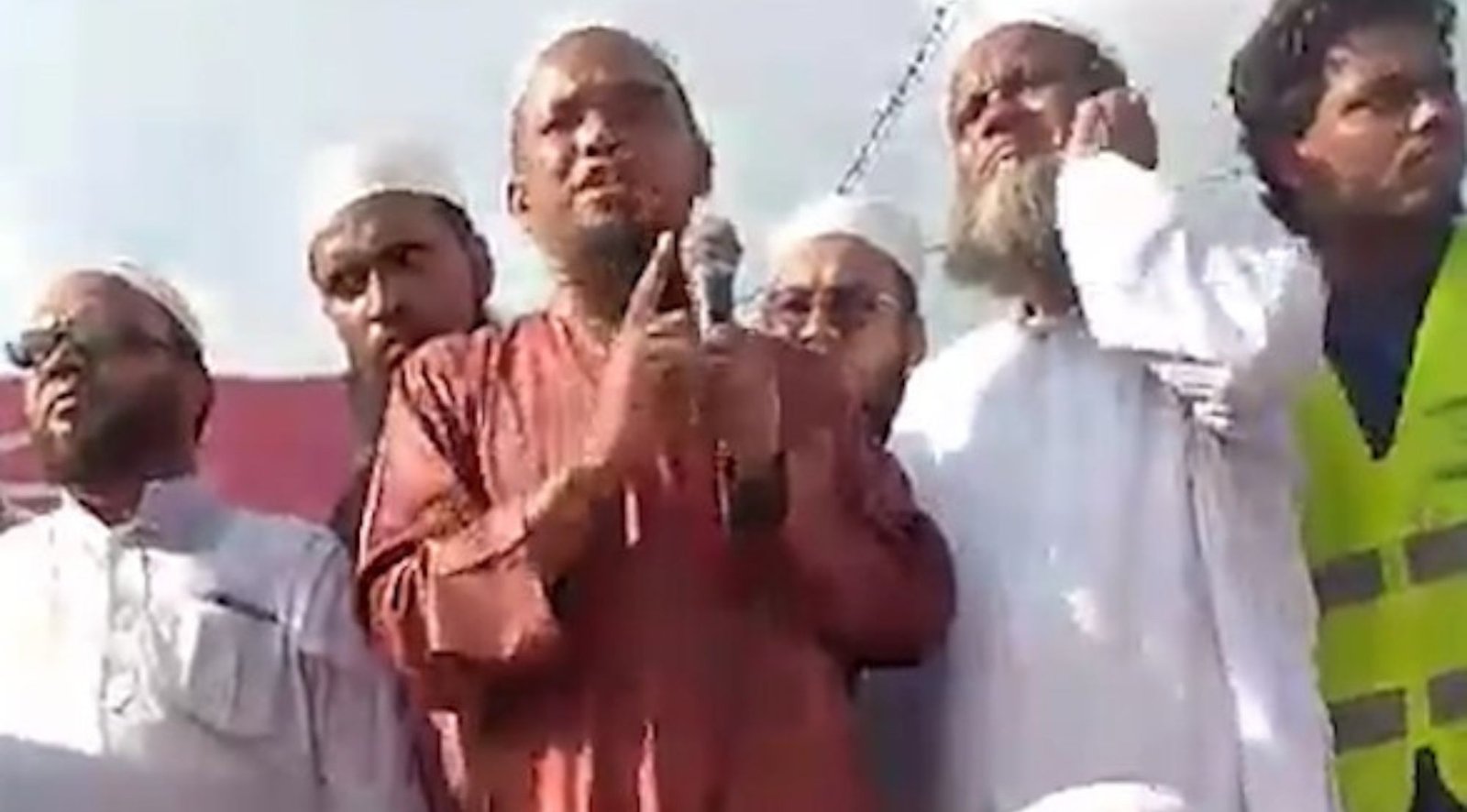
Caption: At the Sonaimuri Crossroads, they incited the crowd with provocative speeches. (07 September 2024, Noakhali)
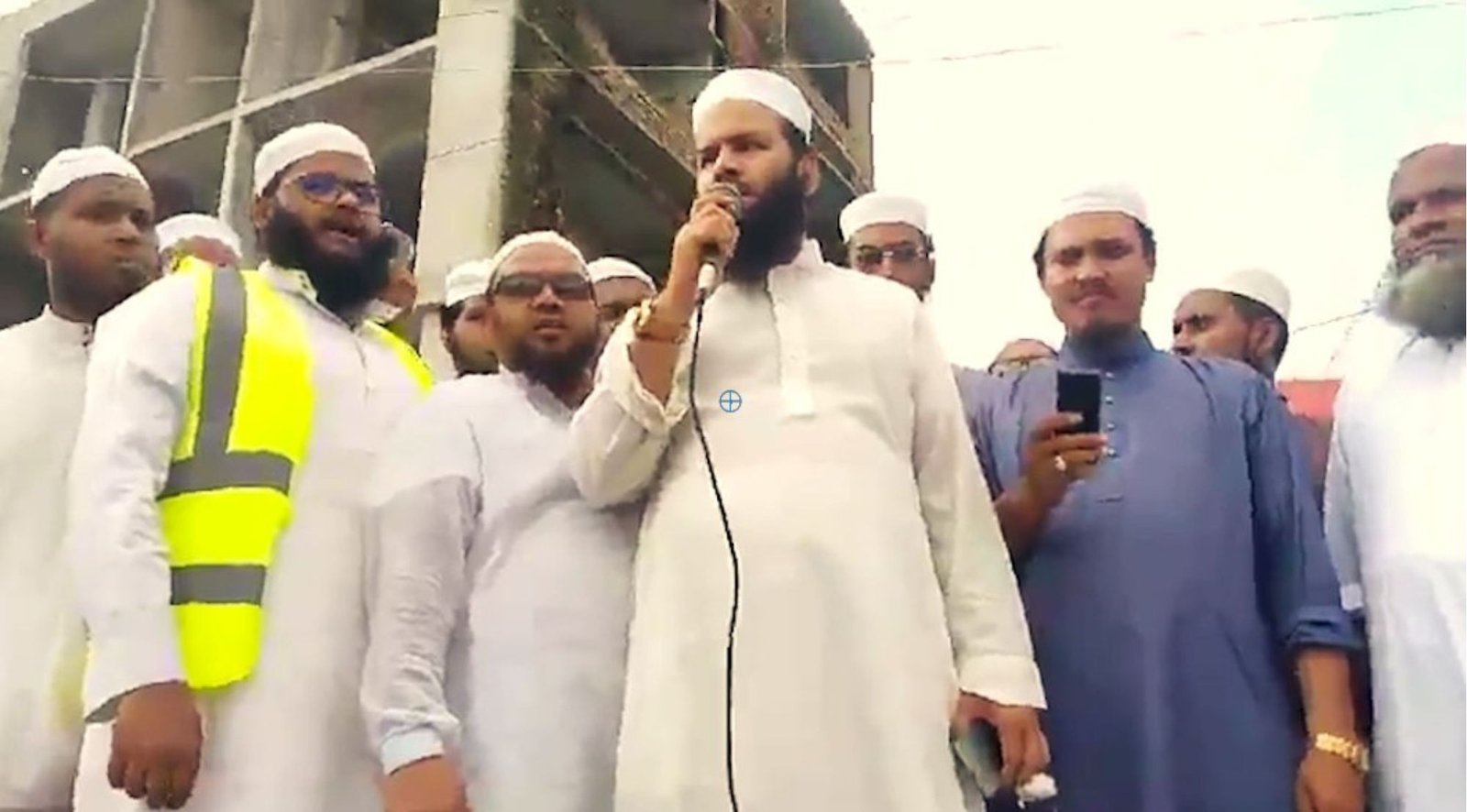
Caption: At the Sonaimuri Crossroads, they incited the crowd with provocative speeches. (07 September 2024, Noakhali)
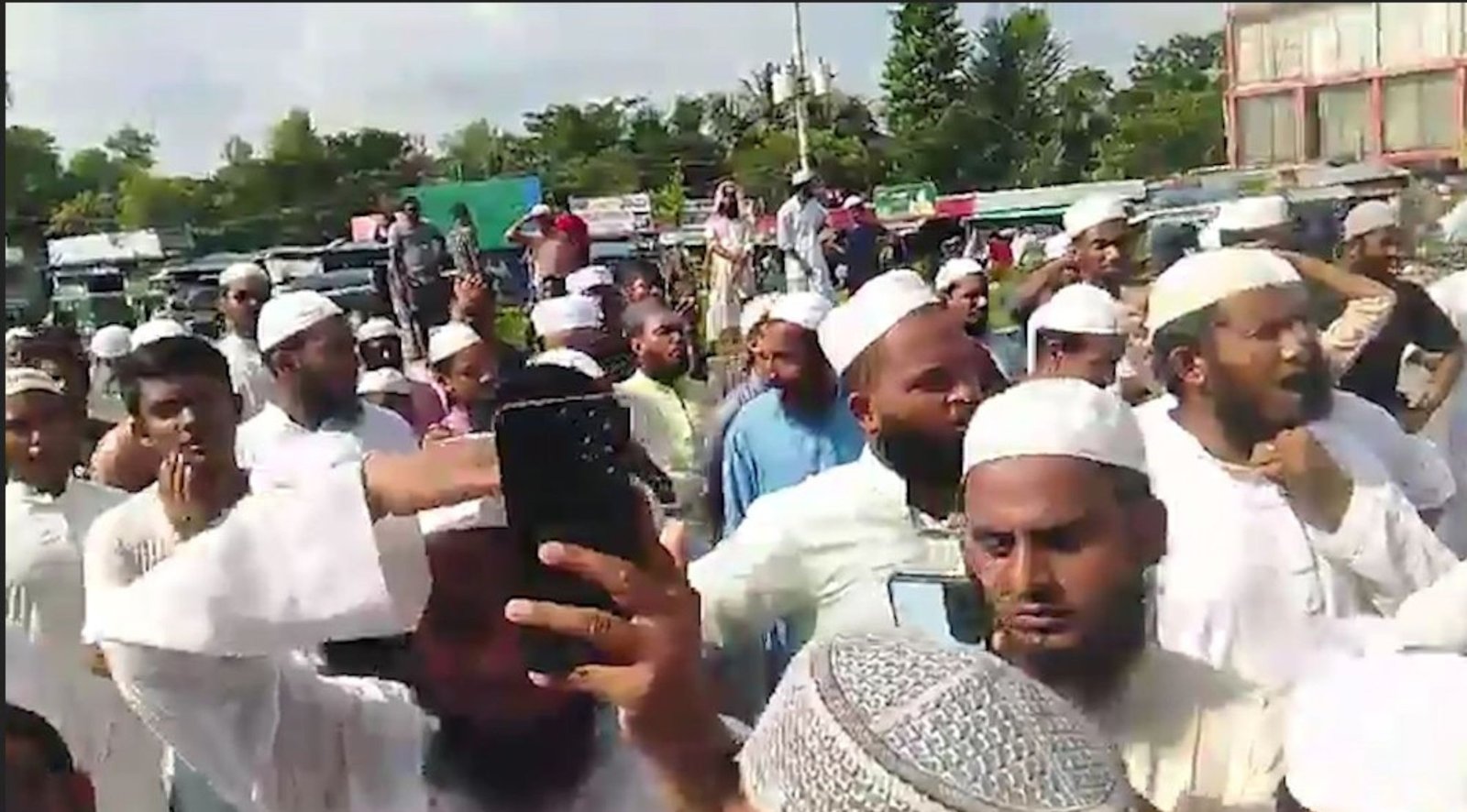
Caption: The frenzy was broadcasted live on Facebook. (07 September 2024, Noakhali)

Caption: At the Sonaimuri Crossroads, they incited the crowd with provocative speeches. (07 September 2024, Noakhali)
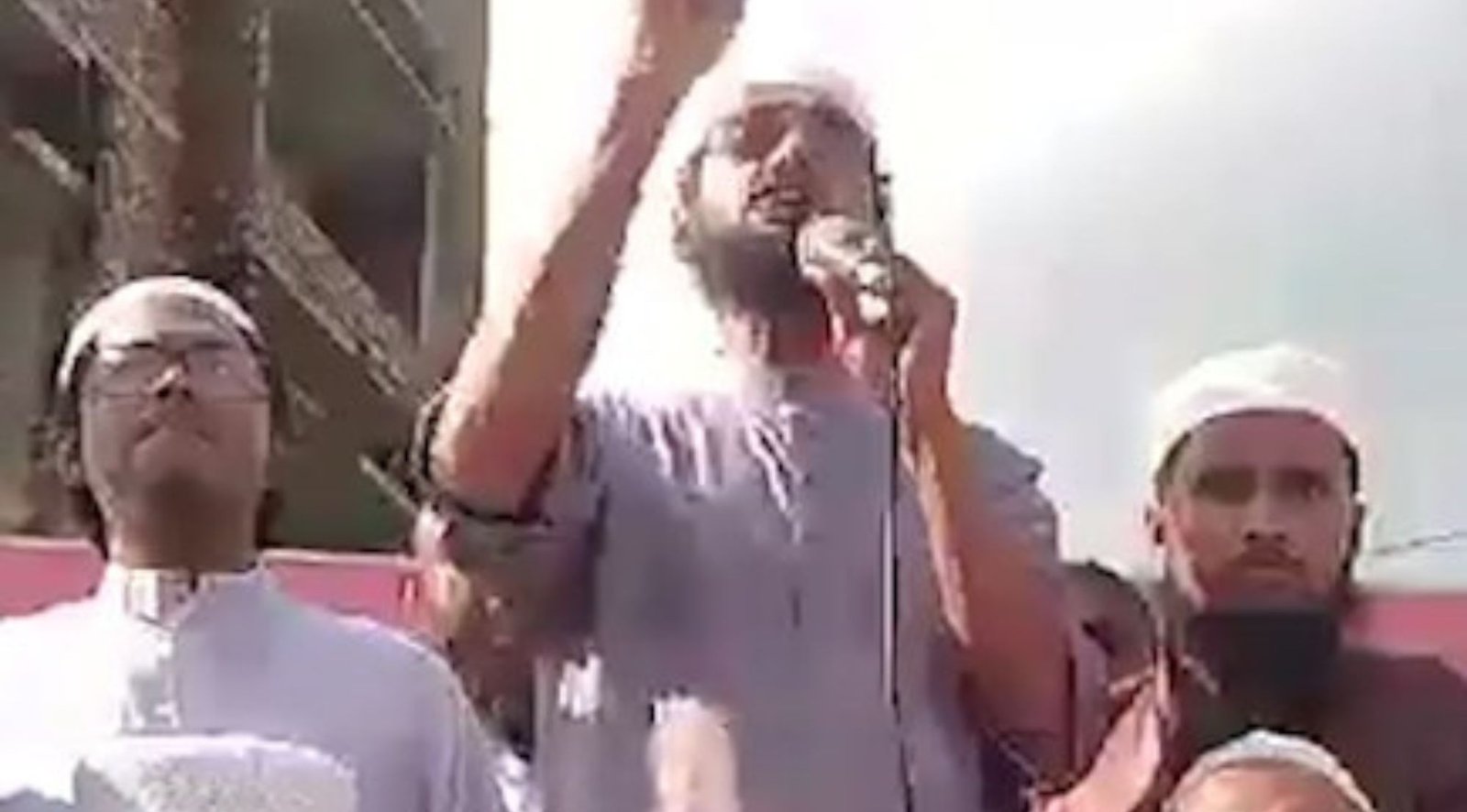
Caption: At the Sonaimuri Crossroads, they incited the crowd with provocative speeches. (07 September 2024, Noakhali)
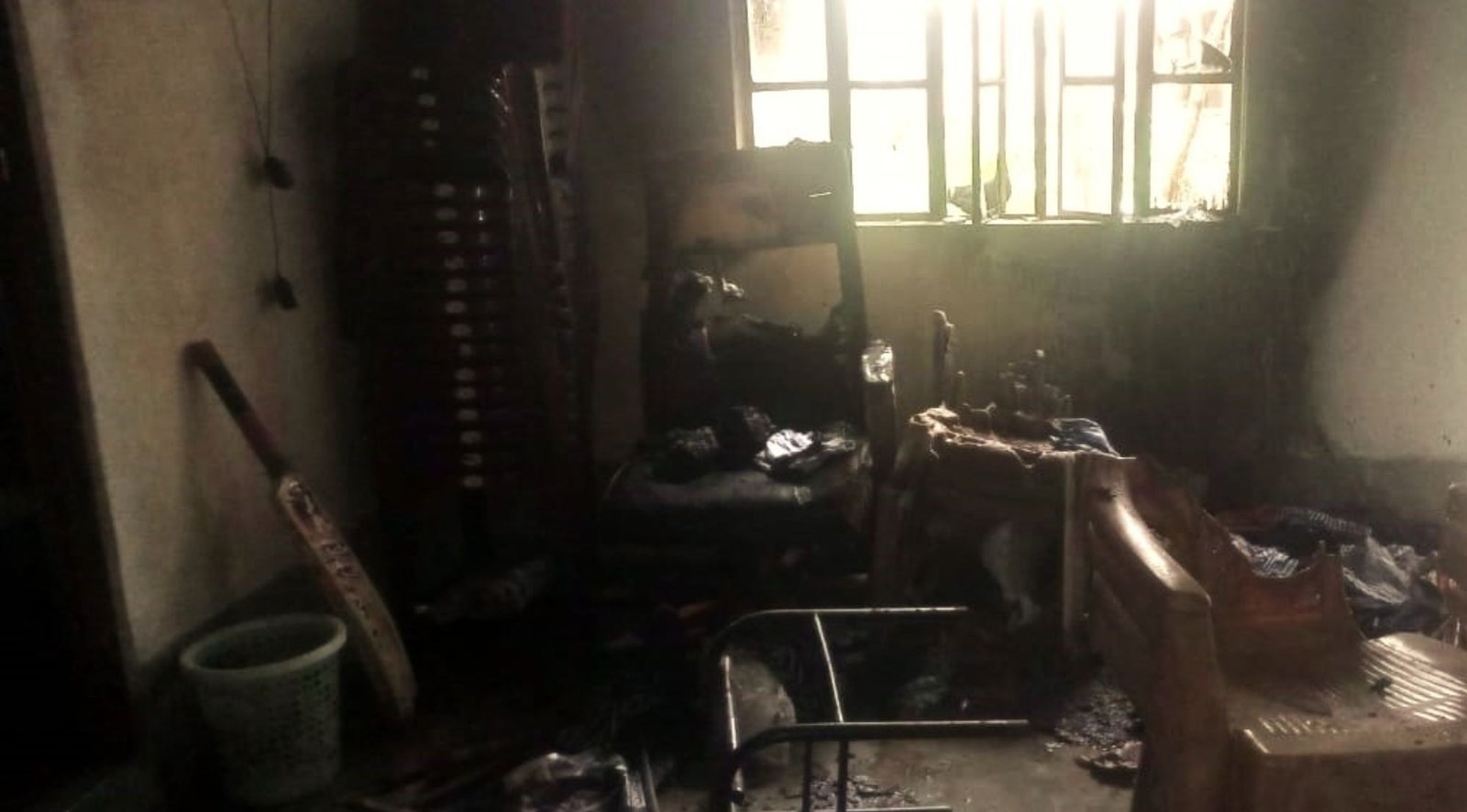
Caption: They set the house on fire in the middle of the night, trying to kill the whole family. (20 August 2024, Lakshmipur)
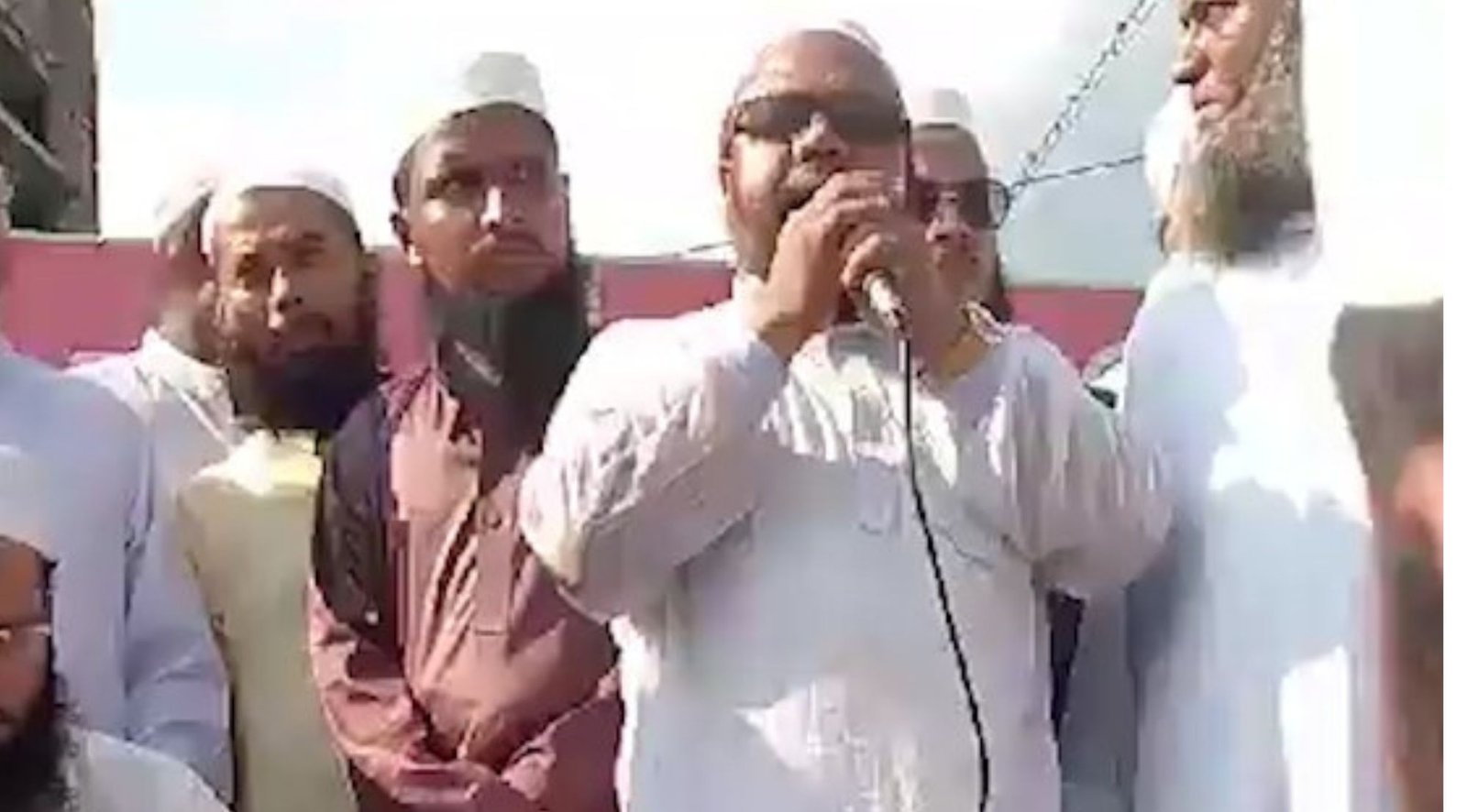
Caption: At the illegal gathering, the radical mullahs issued an ultimatum to kill the Imam of Hezbut Tawheed and evict the movement’s members from the area. (07 September 2024, Noakhali)
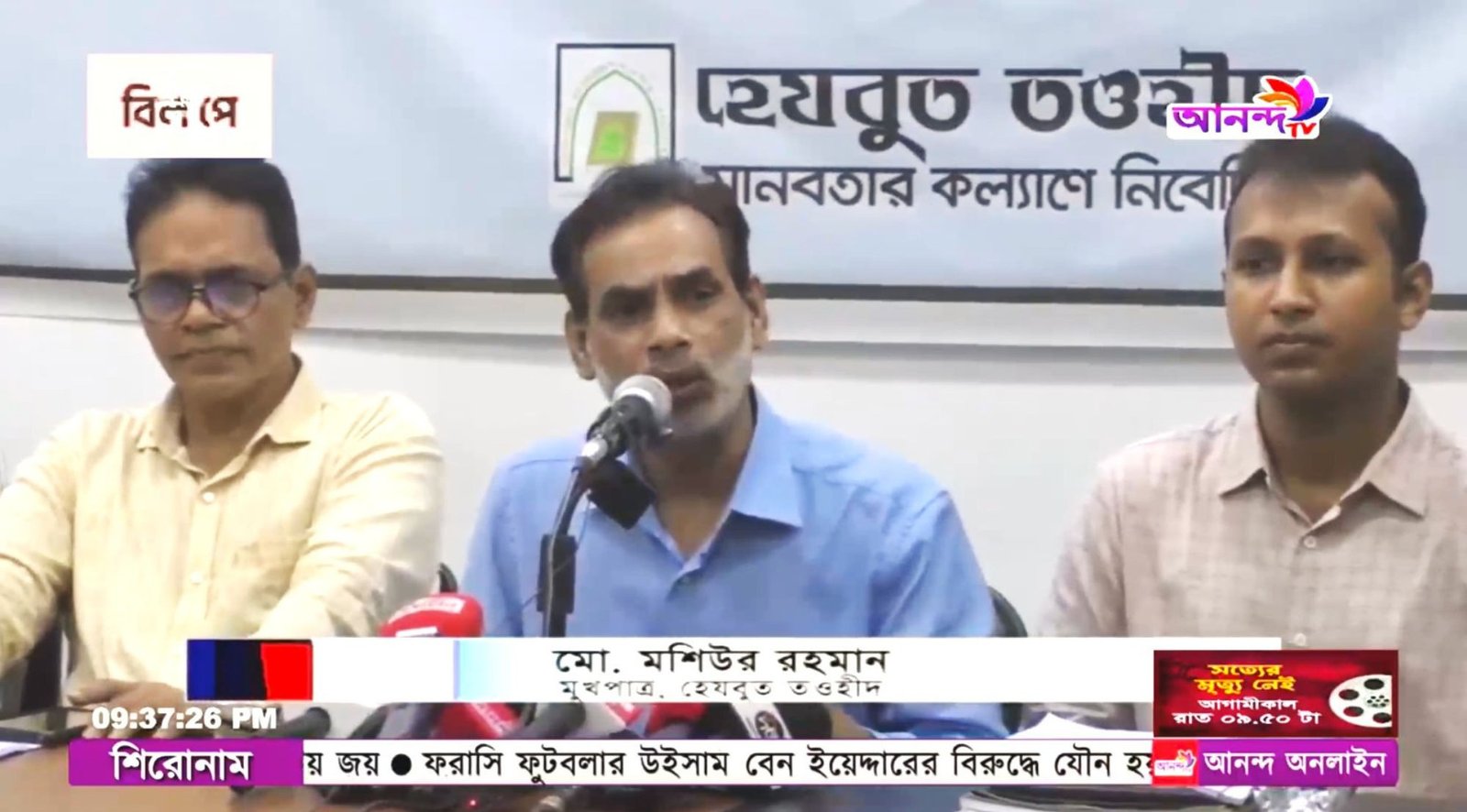
Caption: Media Coverage of the Press Conference

Caption: Media Coverage of the Press Conference
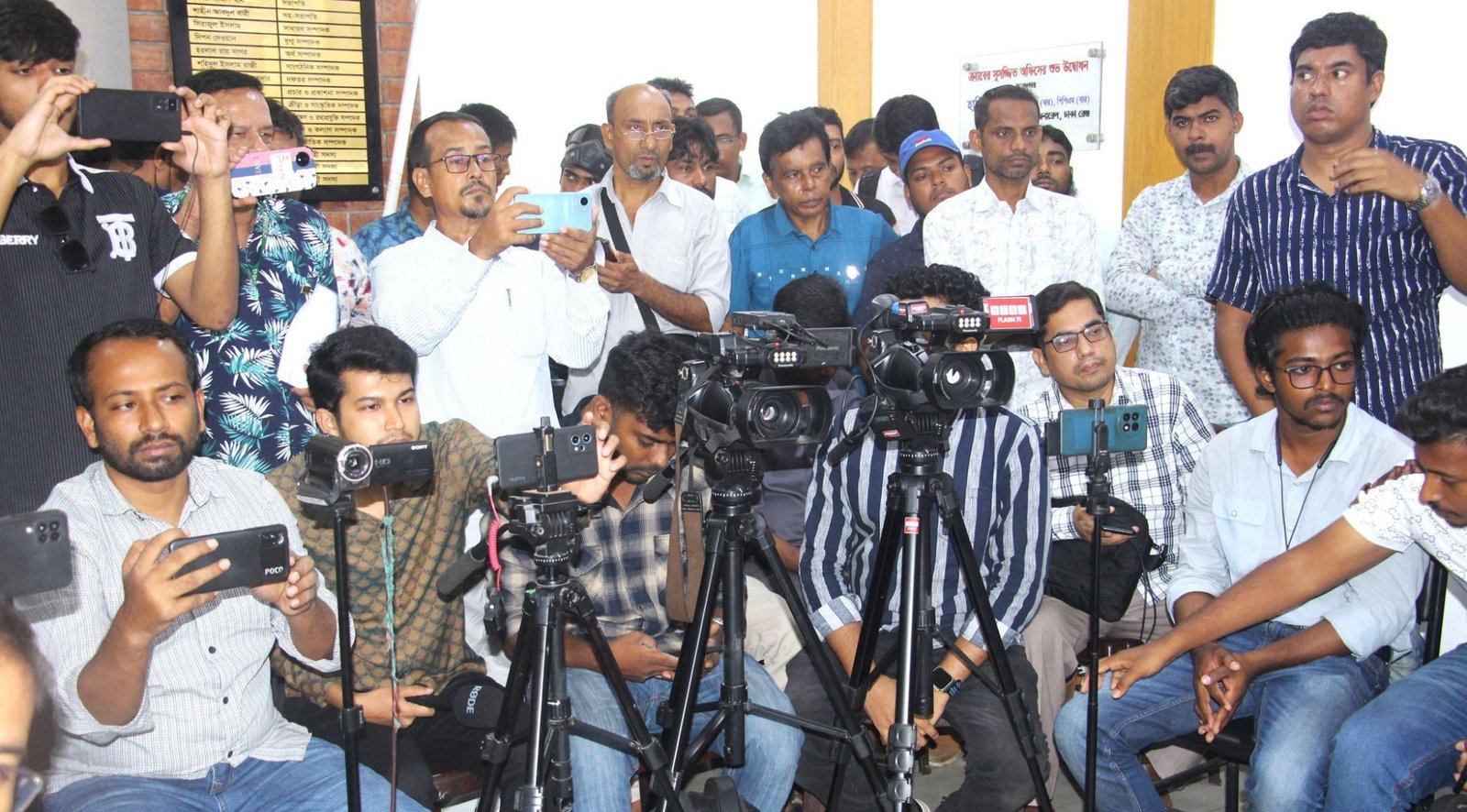
Caption:
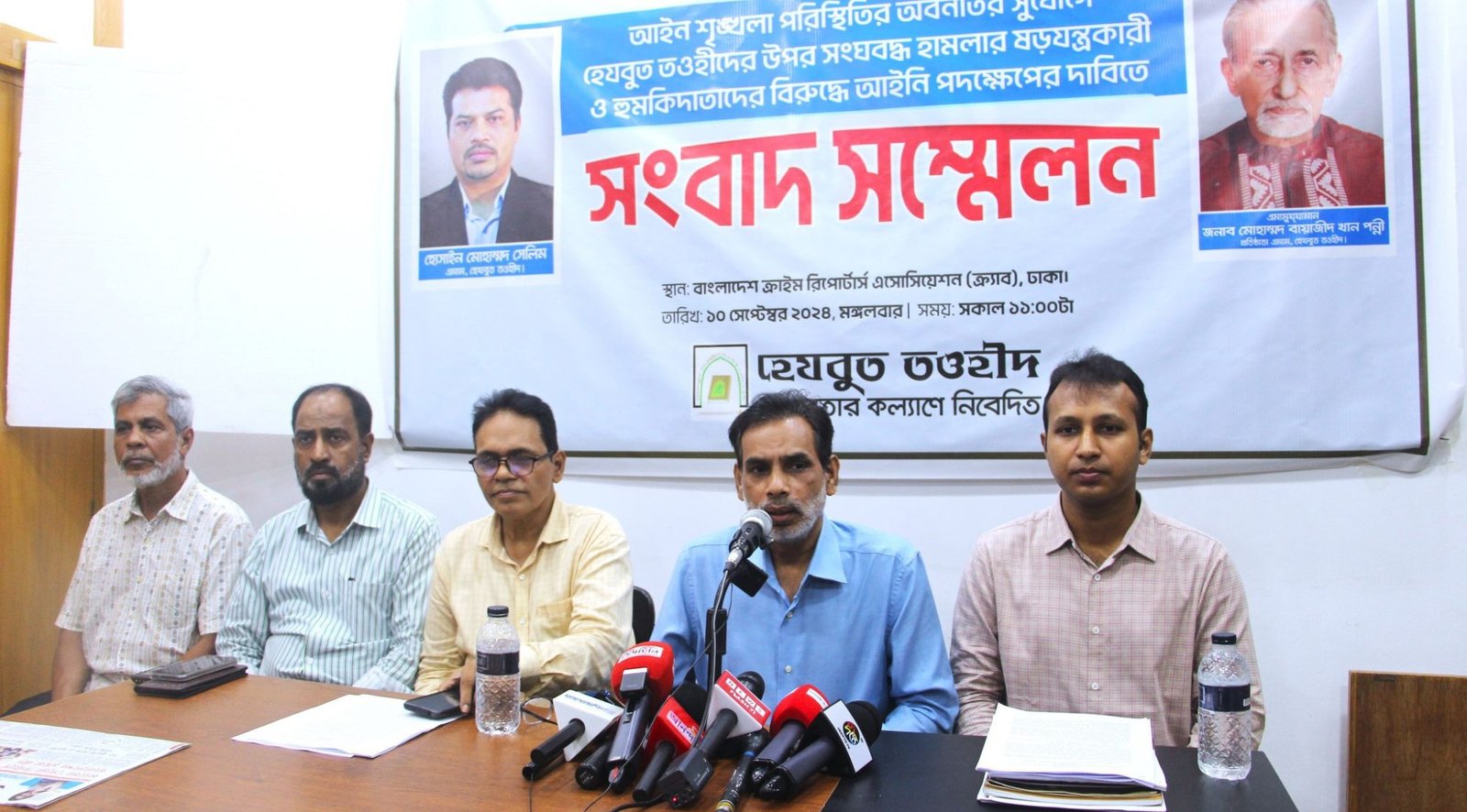
Caption:
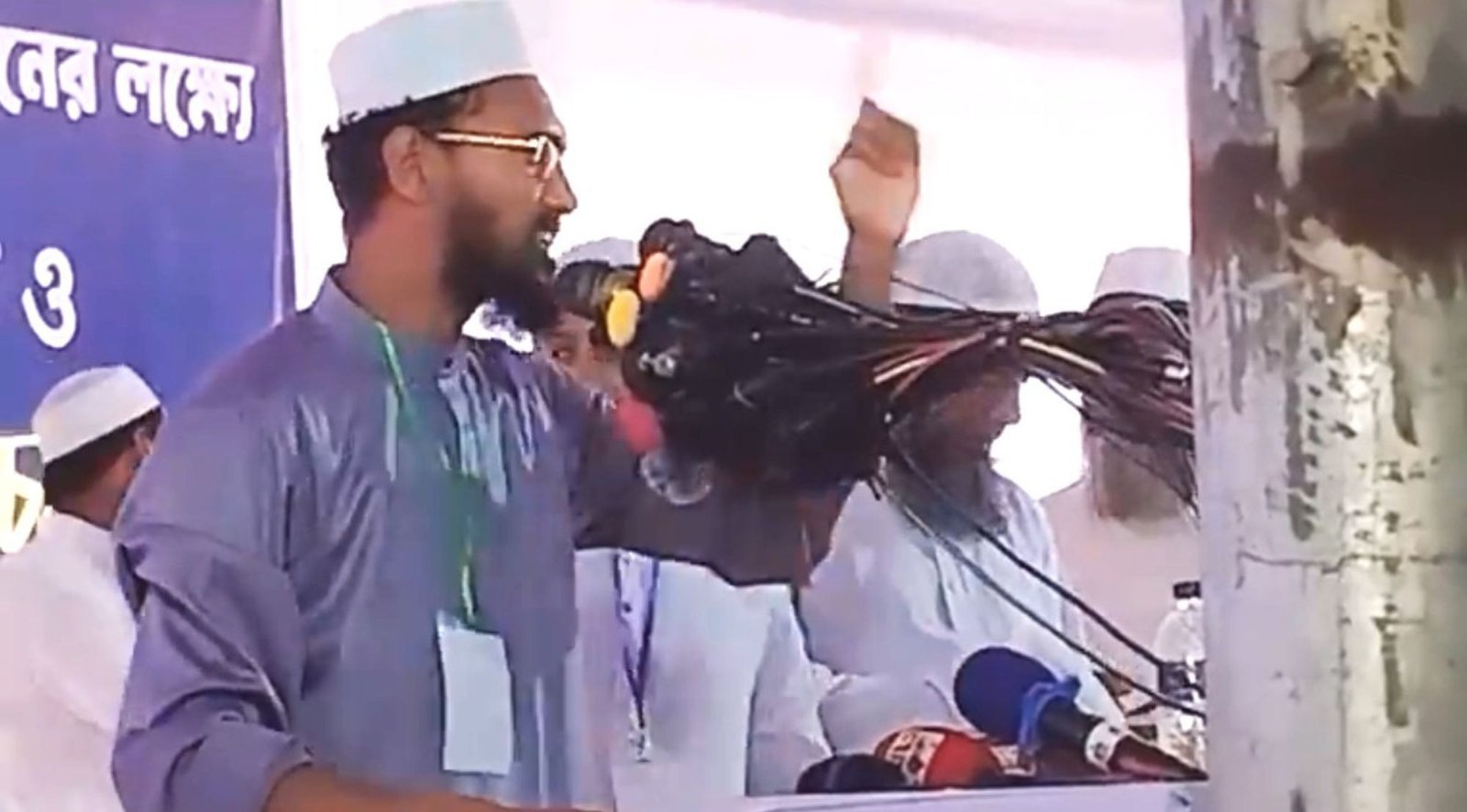
Caption: Four days after the incident, on September 11, extremist speakers threatened to wipe out Hezbut Tawheed and kill its imam in Maijdee, Noakhali. (11 September 2024, Noakhali)
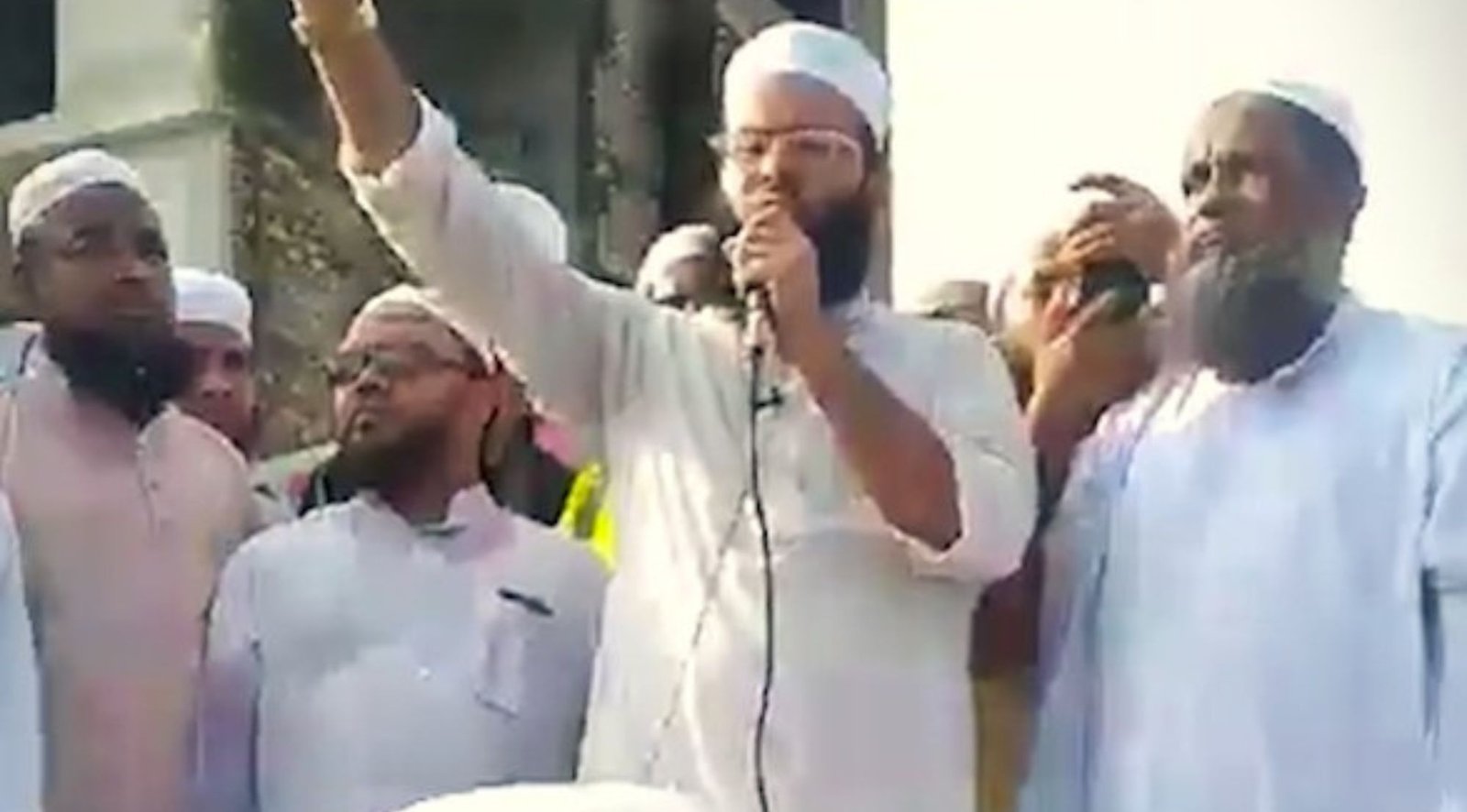
Caption:
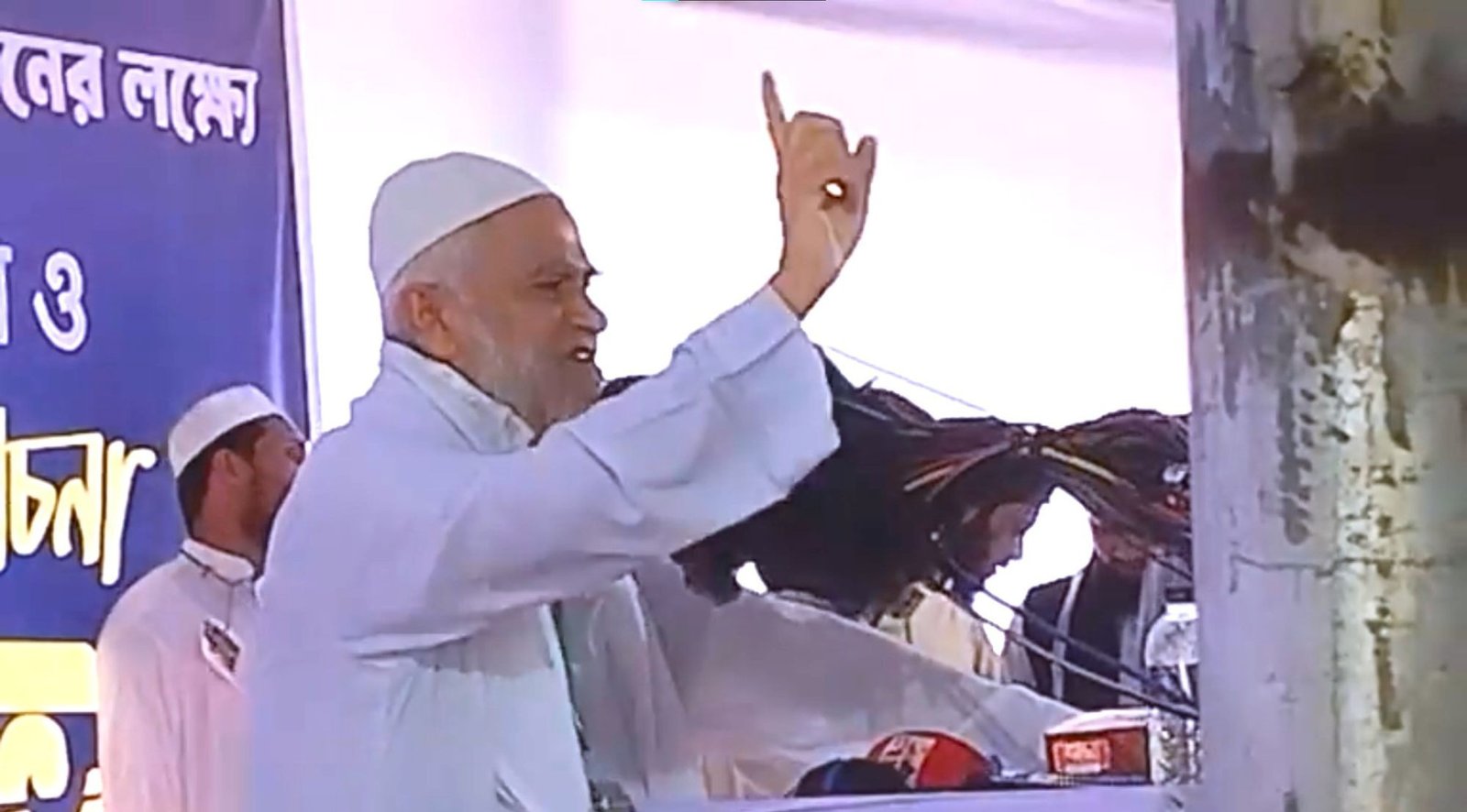
Caption:
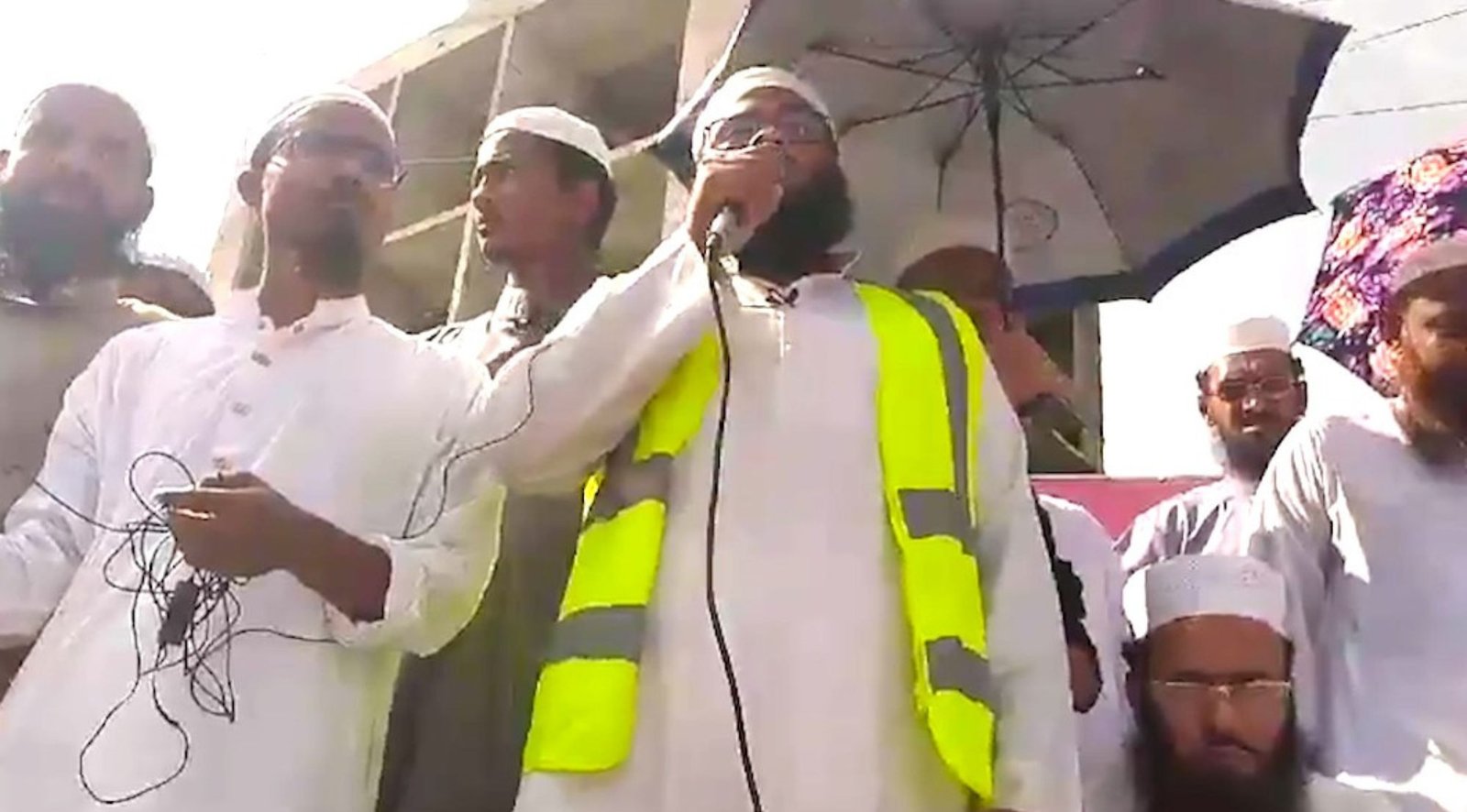
Caption:
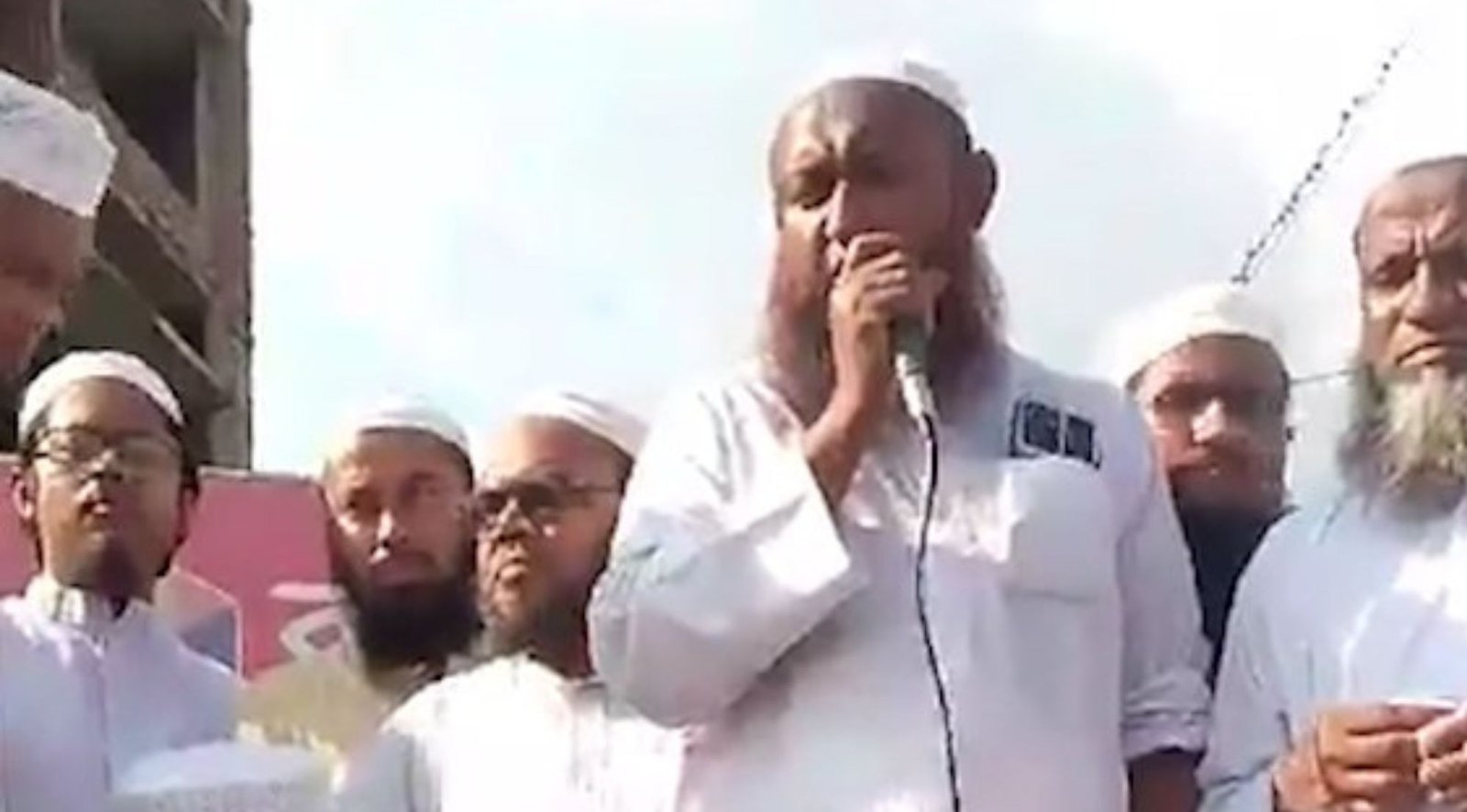
Caption: hhhhhhh
In the wake of Bangladesh’s recent political unrest, following the fall of the Awami League government, Hezbut Tawheed—a non-political religious reformist movement—has become a target of extremist violence. The collapse of the government, replaced by a military-backed interim administration, has thrown the country into chaos, with extremist groups exploiting the situation to attack Hezbut Tawheed’s members and properties.
Hezbut Tawheed’s Mission
Founded in 1995 by Mohammad Bayazeed Khan Panni, Hezbut Tawheed seeks to promote a peaceful and rational interpretation of Islam. The movement stands against religious extremism, intolerance, and the exploitation of religion for personal gain. Hezbut Tawheed advocates interfaith harmony, gender equality, and human rights, positioning itself as a progressive Islamic reformist group dedicated to social welfare.
The movement strictly adheres to five core principles:
1. No political involvement.
2. No engagement in illegal activities.
3. Members earn legally and fund the movement.
4. No external financial aid.
5. Transparency in all activities.
Over the last 30 years, Hezbut Tawheed has worked peacefully within Bangladesh, organizing over 200,000 public meetings, seminars, and rallies to raise awareness about extremism.
Growing Extremist Opposition
From the outset, Hezbut Tawheed’s reformist stance has drawn hostility from radical factions, who oppose its efforts to promote interfaith unity and gender equality. The movement’s denunciation of using religion for personal gain and its emphasis on women’s rights have made it a prime target for extremists.
Hezbut Tawheed has consistently emphasized that Islam supports gender equality and rejects the forced imposition of ideologies. The movement also advocates cultural freedom and rejects the idea that Arab customs must be adopted to practice Islam. These views directly challenge extremist groups, which exploit religion to gain power and incite violence.
Violent Attacks on Hezbut Tawheed
Since the political upheaval of August 2024, extremist attacks on Hezbut Tawheed have surged. The unrest in Bangladesh has created an environment where these groups can act with impunity, orchestrating mob violence against the movement. Homes, offices, and shops owned by Hezbut Tawheed members have been looted and set on fire, with extremists inciting mobs through social media.
One particularly violent incident occurred on August 20, when extremists attempted to burn down the house of the general secretary of Hezbut Tawheed’s Lakshmipur district branch, locking the family inside. Fortunately, the family managed to escape, but the attack highlighted the severe threats facing the movement.
Similar attacks have been carried out against Hezbut Tawheed’s offices across multiple districts, including Sherpur, Pabna, and Kushtia. Extremist groups have targeted these locations, vandalizing and destroying properties while inciting hatred and violence against the movement.
The Movement’s Resilience
Despite these repeated assaults, Hezbut Tawheed remains committed to its peaceful principles. The movement has consistently sought legal action rather than retaliating with violence. Its leader, Hossain Mohammad Salim, has continued to promote socio-economic development in his village despite the ongoing threats. Projects such as cattle farms, schools, and medical clinics have provided employment and welfare for local communities, benefiting thousands of people.
However, extremist groups continue to perceive Hezbut Tawheed’s activities as a threat to their influence. Using social media, they have rallied their followers to organize attacks, threatening violence if the movement is not expelled from certain areas. Recently, they held rallies near the home of Hossain Mohammad Salim, openly inciting attacks and issuing ultimatums to the local population.
Hezbut Tawheed’s Appeal for Justice
While Hezbut Tawheed has faced over a thousand attacks in the past 30 years, the current wave of violence is particularly concerning. Extremist groups are using the political instability to further their agenda of religious extremism and intolerance. The movement has repeatedly called on authorities to bring those responsible for the attacks to justice and ensure the safety of its members.
Hezbut Tawheed’s demands are simple:
1. Prosecute those inciting violence and making threats.
2. Hold accountable those using social media to spread extremist rhetoric.
3. Investigate recent attacks and bring perpetrators to justice.
The movement stresses that it has no political ambitions and only seeks to practice and promote a peaceful interpretation of Islam. Despite facing significant threats, Hezbut Tawheed remains steadfast in its commitment to counter extremism through education, dialogue, and reform.
Conclusion
Hezbut Tawheed’s non-violent resistance to extremism stands as a beacon of hope in a country grappling with political chaos. While extremist groups continue to target the movement, Hezbut Tawheed’s resolve to uphold the true teachings of Islam, promote peace, and fight religious intolerance remains unshaken. The movement calls for justice and protection, urging the government to take decisive action against those who seek to incite violence and suppress peaceful reform.
To see more details regarding this post, please refer to this PDF file. Download PDF
Images Related to this Post
Search
Popular Post
Recent Post
Tags
Hezbut_Tawheed
Imam Hossain Mohammad Salim
Bangladesh Violence
Religious Extremism
Mob Attacks
Human Rights Violations
Minority Persecution
Rangpur Attacks
Jamaat-E-Islami
Hefazat-E-Islam
Tawheed
Muslim Ummah
Islamic Unity
Shirk
Kufr
Islamic Revival
Kalima-E-Tawheed
Obedience To Allah
Deen-Ul-Haq
Hizb-Ut-Tawheed
Ram Temple
Third Temple
Ayodhya
Jerusalem
Religious Politics
Babri Masjid
Al-Aqsa
Zionism
Hindutva
Netanyahu
Religious Hate
Muslim Unity
Noakhali Conference
Imam Salim
Islamic Movement
Shahidi Jame Mosque
Ht Members Conference
Bangladesh Religious Persecution
Islamic Reform Movement
Extremist Violence
Human Rights Bangladesh
Sonaimuri Noakhali Attack
Political Extremism Bangladesh
Faith-Based Violence
Eid Al‑Fitr
Zakat Al‑Fitr
Ramadan Charity
Islamic Social Justice
Community Harmony
Bangladesh Poverty
Islamic Economy
Sadaqah
Fitrana
Eid Unity
Arab History
Islamic Governance
Caliph Umar
Social Transformation
Women’s Rights In Islam
Justice In Islam
Political Systems
Islam Vs Democracy
Islam And Knowledge
Islamic System
Prophet Muhammad
Farewell Sermon
Hajj
Global Peace
Human Rights In Islam
Dhul-Hijjah
Arafat Sermon
Islam Vs Un Charter
Unemployment In Bangladesh
Education System Failure
Educated Unemployment
Jobless Graduates
British Education Legacy
Youth Crisis
Hezbut Tawheed Views
Bids Report
Ssc To Masters Job Race
Middle Class Dilemma
Kerani Mentality
Excessiveness In Religion
Religious Distortion
Overinterpretation Of Islam
Misguided Enthusiasm
Warnings Of The Prophet
True Islam
Spiritual Clarity
Abandoning The Mission
Chormonai Pir
Desherpotro
Islamic Reform
Persecution In Bangladesh
Religious Violence
Jamaat-E-Islami Attacks
Islamic Truth Movement
Women And Knowledge
Islamic Feminism
Gender Roles
Social Awareness
Muslim Women
Female Empowerment
Islamic History
Qur’anic Guidelines
Obeying Allah’s Commands
Islam And Suffering
Workers' Rights In Islam
Labor Justice
May Day Islam
Islamic Society Model
Chashirhat Development
Imam Hossain Mohammad Selim
Islamic Brotherhood
Fair Wages
Islamic Military Strategy
Tawheed-Based State
National Security
Qur’anic Warfare
Mujahideen
Peacekeeping
Modern Islamic Army
Military Training
Ummah Defense
Sharia Governance
Southasia
Extremism
Bangladesh
India
Pakistan
Myanmar
Jihad
Islamophobia
Radicalism
Resistance
Conflict
War
Terrorism
Proxywar
Bjp
Hasina
Ghazwa
Kashmir
Rohingya
Arsa
Militancy
Ideology
Unity
Awareness
Injustice
Arms
Geopolitics
Gaza
Hypocrisy
Taliban
Alqaeda
Afghanistan
Syria
Iraq
America
China
Russia
Media
Violence
Oppression
Nationalism
Muslim
Islam
Justice
Youth
Leadership
Sovereignty
Hezbuttawheed
Mosque
Governance
Society
Administration
Education
Military
Economy
Women
Culture
Law
Quran
Hadith
Prayer
Madinah
Baytalmal
Amir
Discipline
Khutba
Transparency
Spirituality
Training
Morality
Ummah
Prophet
Sharia
Community
Peace
Development
Security
National
Khutbah
Sabr
Zakat
Sufism
Equality
Mosquesystem
Participation
Aqiqah
Accountability
Tradition
Modernity
Ummati Muhammad
Unity In Islam
Sunnah
Islamic Teachings
Muslim World
Deen Of Islam
Security Crisis
National Unity
Political Unrest
Military Vulnerabilities
Strength
Solidarity
Disunity
Muslim Nations
Women's Rights
Rufaidah Panni
Eid Congregation
Islamic Women Empowerment
Social Justice
Equality In Islam
Momen
Kafir
Mushrik
Allah's Laws
Faith In Islam
Belief In Allah
True Believers
Kalimah
Shariah
Justice And Peace
Political Parties
Multiparty Democracy
Political Factionalism
Islamic Political System
Democracy Vs Islam
Secularism
Political Ideologies
Islamic Law
Political Vision
Governance Without Parties
Political Stability
Islamic State
Shura System
Islamic Perspective
Women’s Reform Commission
Family Law
Inheritance Law
Labor Recognition
Shariah Law
Gender Equality
Religious Opposition
Feminist Movement
Human Rights
Political Debat
Arab Society
Islamic Economic Justice
Military Transformation
Education In Islam
Judicial Independence
Accountability In Islam
Islam And Democracy
Societal Transformation
Governance Systems
Surah Yaseen
Islamic Guidance
Religious Work
Misguidance
Imam Role
Religious Commercialization
Truth And Falsehood
Religion And Society
Quranic Teachings
Ethical Leadership
Spiritual Struggle
Religious Scholars
Religious Corruption
Quranic Verses
Islamic Scholars
Prophet Muhammad (S.a.w)
Military Nation Of Islam
Sahabah
Lost Legacy
Ummah Of Muhammad
Jehad
Qetal
Islam And Violence
Islamic Leadership
State Vs Individual Struggle
Allah's Help
Islamic Reflection
Divine Support
Muslim World Crisis
Quran Teachings
Islamic Awakening
Qurbani
Bangladesh Politics
Eid Ul Adha
Islamic Sacrifice
Bangladesh Crisis
Global Conspiracy
Sacrifice
Labour Rights
Employment Crisis
Bangladesh Economy
Wage Gap
Inflation
Unemployment
Education Reform
Job Creation
Income Inequality
Post-Pandemic Economy
Eid-Ul-Azha 2025
Bangladesh Eid Congregation
Eid Prayer 2025
Women's Participation
Peace & Justice
Bangladesh Religious Events
Eid-Ul-Azha Message
Khilafah
Global Oppression
Islamic Festivals
Quranic Guidance
Spiritual Sacrifice
Ibrahim's Sacrifice
Eid Mubarak
Peace Through Tawheed
Women's Reform Debate
Bangladesh Women's Rights
Hezbut Tawheed Position
Islamic View On Women's Rights
Legal Reforms Bangladesh
Family Law Reform
Inheritance Rights
Sharia Law Bangladesh
Women's Equality
Western Influence
Religious Groups Debate
Gender Equality Islam
Islamic Social Solutions
Women's Dignity In Islam
Islamic Solutions
Beyond Politics
Labor Rights
Class Struggle
Economic Solutions
May Day Analysis
Economic Justice
Divine Accountability
Global Economic Crisis
Capitalism Vs Islam
Socialism Vs Islam
Savar Attack
Ishwardi Attack
Religious Fanaticism
Political Manipulation
Islamic Extremism
Government Response
Democratic Threats
Islamic Teachings Misuse
Radical Ideology
Communal Conflict
Radical Groups In Bangladesh
Terrorism In Bangladesh
Islamic Rights
Mosque Access
Eid Prayer
Muslim Women Empowerment
Prophet Muhammad Teachings
Women In Mosques
Women Rights In Islam
Gender Equality In Islam
Masjid An-Nabawi
Women's Role In Islam
Misconceptions About Women
Women Participation In Mosque
Eid Khutbah 2025
Islamic Sermon
Hossain Mohammad Selim
Bangladesh Eid
Qurbani Meaning
Women In Islam
Rufaydah Panni
Islamic Congregation
Female Participation In Eid
Chashirhat Eid
Palestine Solidarity
Eid Prayer Bangladesh
Women In Eid
Kushtia Rally
Gaza Crisis
Muslim Persecution
Bangladesh News
Peace Movement
Humanity
Divine Law
Social Reform
Religious Harmony
Truth
Call To Action
Palestine
Dajjal
Islamic Struggle
Mohammad Bayazid Khan Panni
Genocide
Oic
Protest
National Press Club
Rangpur Attack
Religious Reform
Karwan Bazar Protest
Terrorist Attack
Law And Order Failure
Emamht
Ht_In_Brief
Pabnaattack
Justiceforvictims
Humanchain
Politicalviolence
Legalreform
Endimpunity
Bangladeshjustice
Hezbuttawheedleaders
Demandjustice
Pabnapressconference
Policeinaction
Proposedgovernancesystem
Islamicstatesystem
Allahslaw
Economicreform
Educationreform
Capitalismcritique
Dhakaevent
Purposeofcreation
Humancreation
Khalifah
Allahsplan
Divineguidance
Adamsstory
Islamicteachings
Peaceandjustice
Sovereigntyofallah
Lailahaillallah
Islamiccreed
Aqidah
Islamicfaith
Iman
Deen
Peaceinislam
Purposeofislam
Beliefsystem
Faithandworship
Why
Escalate
Mohammad Bayazeed Khan Panni
Hossain Mohammad Salim
Religious
Extremist
Interfaith
Situation
Ultimatum
Threats
Extremist Attack
Attack
Movement
Barakat Hossain Osama
United Kingdom
Conservative Party
Donald Trump
Secular Leadership
Fanatical Populace
Fanatical
Populace
Religion
Extensive Damage
Catastrophic Flooding
High School
Urgent Help Needed
Devastated
Allah
Modus Operandi
Messenger
Believer
Messenger Of Allah
People
Human
Jame Mosque
A Cornerstone
Cornerstone
A Just Society
The Establishment
Establishment
History
Messenger Muhammad
Simple And Straightforward
Who Made
The Simple
Complex
Way Of Life
Jannah
Way To Jannah
Civilization
Religious Figures
Survive
Politics
Worship
Establish
Goals And Objectives
System Of Life
Money
Tolerance
Madness
Mo'men
Today’s
Educated
Needs
Corruption
British
Government
Democracy
Communism
Socialism
Political
Secular Education
Responsible
The Reign
Hindu
Terrifying
Slavery
Jewish Conspiracy
The Protocols Of The Elders Of Zion
Politician
Give And Take
Education System
European
Population
Mentality
Slave
Preface
Children
The Quran
The Miracle
Creator
The Creator
Creation Of Man
The Creation Of Man
Premise
First Words
Aqida
The Programme
The Messenger
Mankind
Actual
Concept Of Islam
Crossroads
Mojeza
The Call
Panni
The Author
Qur'an
Process
The Process
A Person
Tabook
The Special Three
Special
The Tabook
The Ahzab
Ahzab
Khandak
The Uhud
Uhud
The Badr
Badr
Ebadat
Ma'bud
Vicegerent
Worshipper
Aqaed
The Reasons
Reasons
Reason
Adam
Eblis
Khalifa
Angels
Adam And Eve
Adam And Hawa



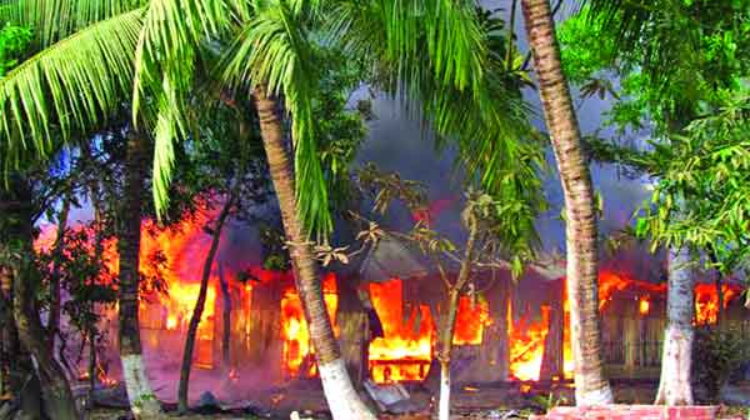








Leave a Comment